That’s why more people are asking: What is an alternative to a pressure washer? Whether you’re dealing with delicate timber decking, heritage stone, or just don’t have a blaster with a five-metre hose handy, there are safer, smarter ways to get the job done — without stripping half your backyard in the process.
Ever seen someone blast the paint off their patio trying to tackle a bit of mould? We’ve all cringed at that one. Truth is, pressure washing isn’t always the fix-it-all hero it’s cracked up to be. While it can work wonders on grubby concrete driveways or stubborn oil stains, it’s not the go-to for every surface.
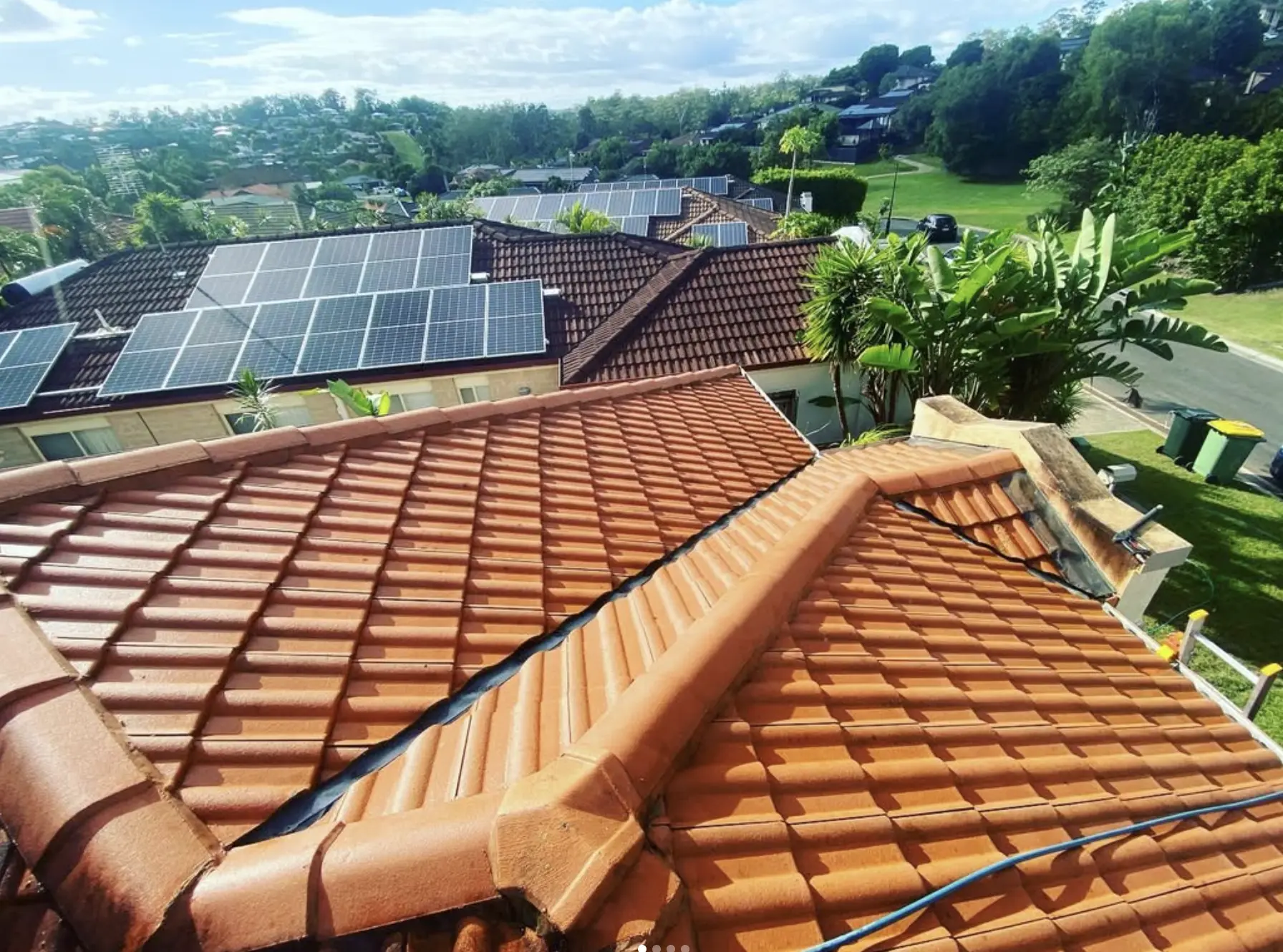
The Gentler, Smarter Way to Clean
Soft washing is like the brainy cousin of pressure washing. Instead of brute water pressure, it relies on low operating pressure and special soft wash solutions to do the heavy lifting. We use it all the time on coloured render, fragile surfaces, roof surfaces and any cleaning surfaces that’d cry out if hit with a high-powered pressure washer.
Benefits:
- Safe on fragile and delicate surfaces
- Kills mould, mildew, algae and lichen at the root
- Lasts longer than a band-aid solution blast with a harsh pressure washer
- Uses less water — think gallons per minute, not buckets per second
- A go-to service for professional exterior cleaning crews
One time we had a sandstone wall on a coastal property that was green with algae. Pressure washing would’ve pitted it. Soft washing? Came up a treat. Excellent cleaning performance without the damage that pressure washing can do.
Methods of Washing Outside the House
Hose Pipe
Don’t have a compact pressure washer or cordless pressure cleaner? No worries. These other methods get the job done — with less risk and more control over your cleaning power.
The humble hose pipe or regular garden hose may not have a 30-foot hose reach or multi-spray nozzle attachments, but it’s perfect for rinsing off light dirt and grime build-up. Pair it with a garden spray nozzle or rotary nozzle for extra oomph.
Hose pipe rinses are good for:
- Light cleaning of flat surfaces
- Washing down patios with diluted detergent or a chemical liquid solution
- Keeping the place tidy between deep cleans
Add a hose reel, gentle nozzle or extra hose attachment to reach all areas. Not all garden tasks need a dirt blaster spray, after all.
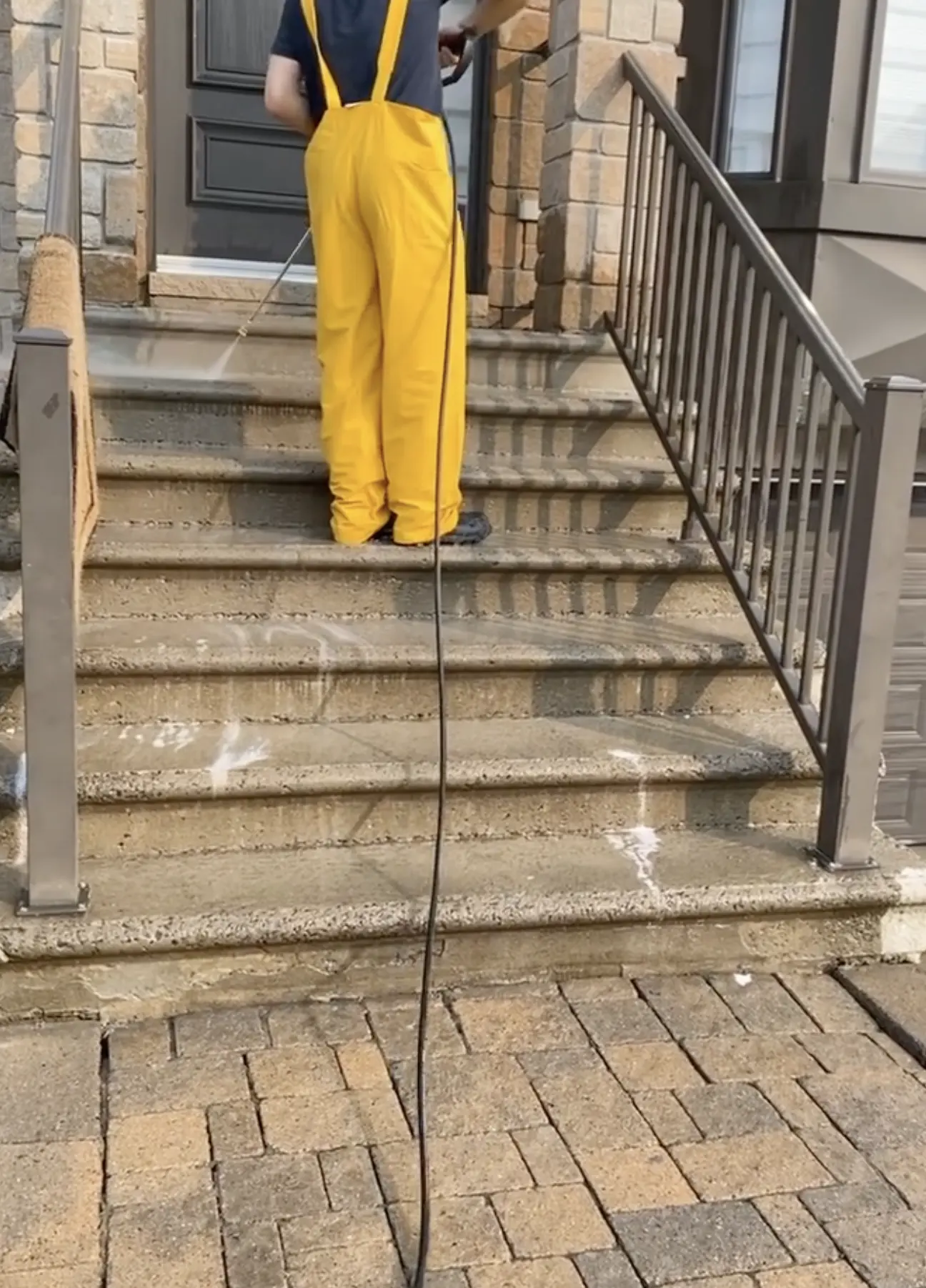

Scrubbing Brush and Bucket
When in doubt, go manual. A hard-bristled brush or heavy-duty brush, a bucket of diluted detergent (no bleach solution on fragile surfaces please), and a bit of elbow grease can clear built-up dirt in 15–20 minutes.
Good for:
- Discoloured patio slabs
- Grubby patios and deck spots
- Dedicated patio cleaner tasks without the need for an electric pressure washer
Add a brush head attachment or detergent bottle attachment to step it up. Bonus if your bucket has a cart with storage space for convenience.
Steam Cleaners
Steam is your chemical-free, deep-cleaning bestie. It’s perfect for complex tasks on delicate surfaces or acid solution no-go zones.We’ve steam cleaned limestone pool surrounds where a power washer would’ve done more harm than good. The dirt and grime build-up lifted without a single drop of detergent feed.
Cleaning Wand Attachment
No pressure washer? No problem. A cleaning wand with a garden hose gives you reach and a bit more control over the spray pattern. Perfect for:
- Exterior windows
- Eaves and tight corners
- Light grime without heavy dirt buildup
Look for models with an adjustable fan nozzle or connect nozzles with detergent feed features for best results.
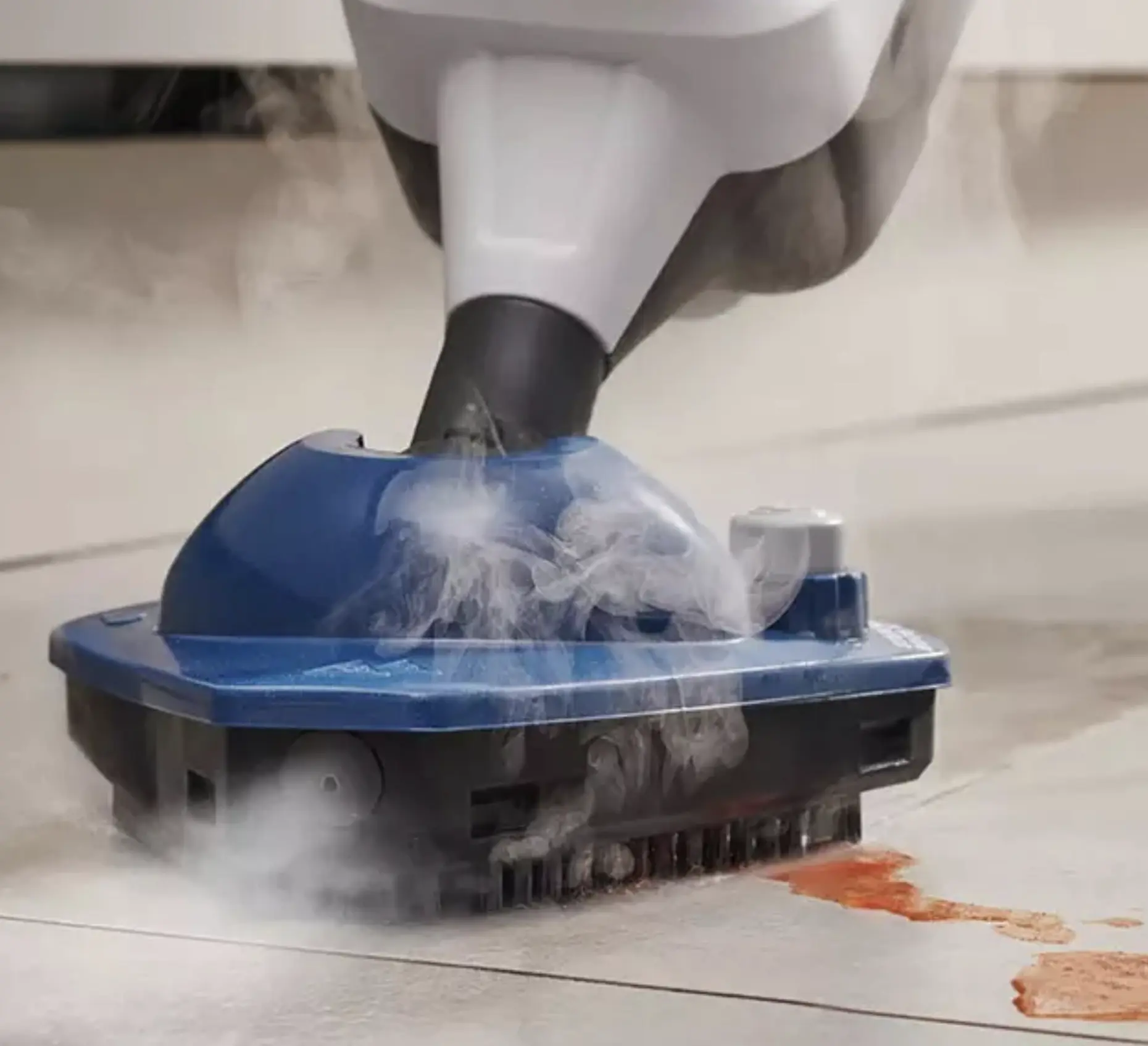
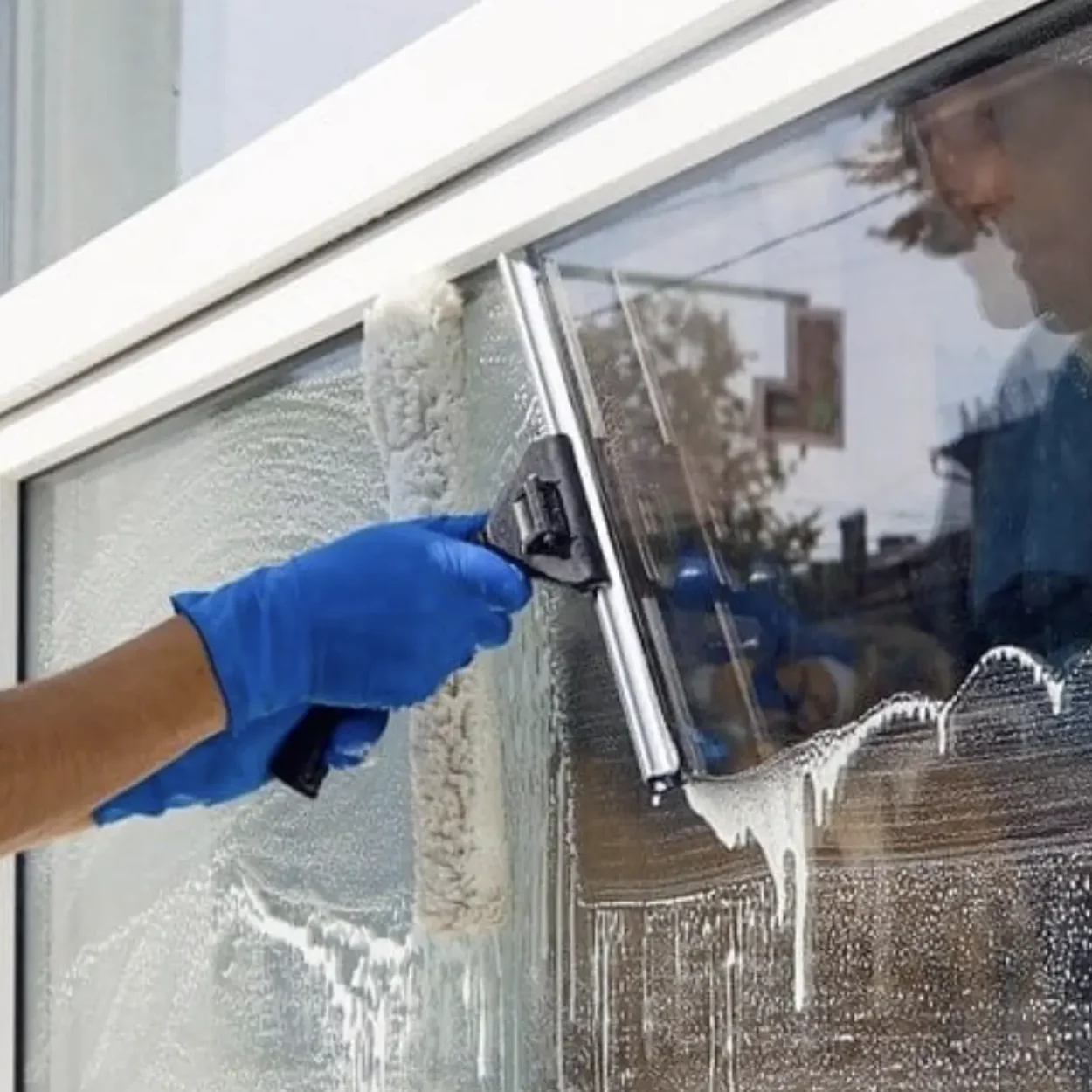
Eco-Friendly Detergents
Sometimes it’s the detergent doing the heavy lifting. Use a good cleaning solution — preferably an eco-friendly one that won’t clog your drainage solutions or stain your exterior surfaces.
What to look for:
- Gallon detergent tank compatibility
- 48-ounce detergent tank or bottle attachments
- Oxygen-boosted formulas for patio cleaner performance
- Safe on delicate surfaces
Broom, Blower & Leaf Rake
Before you get into the nitty gritty of cleaning, remove loose leaves and debris with a blower, rake or stiff broom. Prevention is the best defence against algae and dirt buildup — especially in shady areas that trap moisture.
We’ve cleaned many a concrete driveway this way. It also gives you instant curb appeal — without needing a magazine pressure washer from the hardware store.
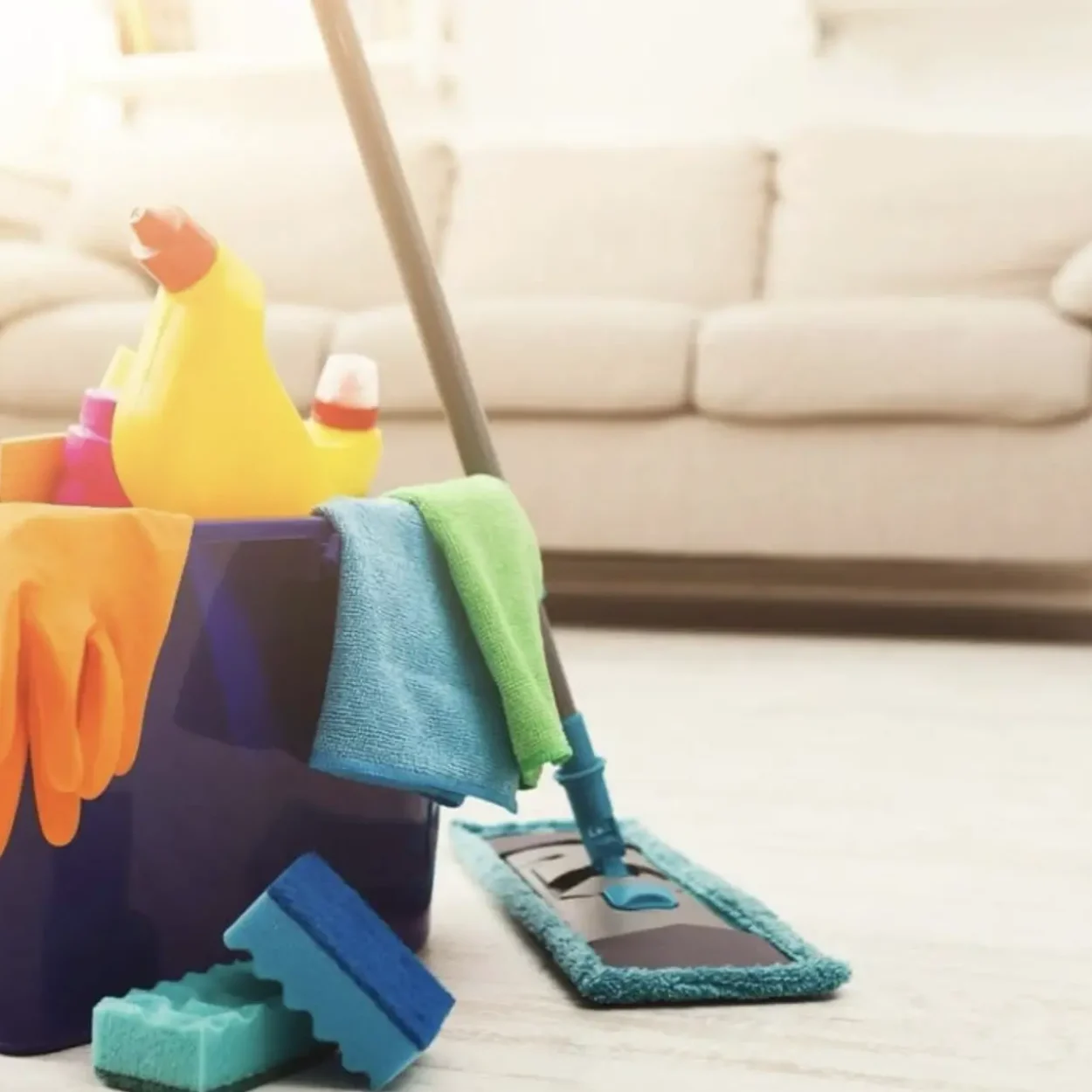
Comparison Table: Pressure Washer vs. Alternatives
| Method | Surface Safety | Water Use | DIY-Friendly | Best For |
|---|---|---|---|---|
| Pressure Washer | Medium–High Risk | High | Moderate | Concrete driveways, brick, and stone |
| Soft Washing | Very Safe | Low–Medium | Low | Painted surfaces, render, siding |
| Garden Hose + Brush | Safe | Low | High | Small patios, furniture, and general upkeep |
| Steam Cleaning | Safe (low blast) | Minimal | Moderate | Grease, sanitising, and urban spaces |
| Hose-End Sprayer | Safe | Low | High | Fences, decks, and small-scale jobs |
| Broom/Blower/Rake | Very Safe | None | Very High | Routine maintenance, debris control |
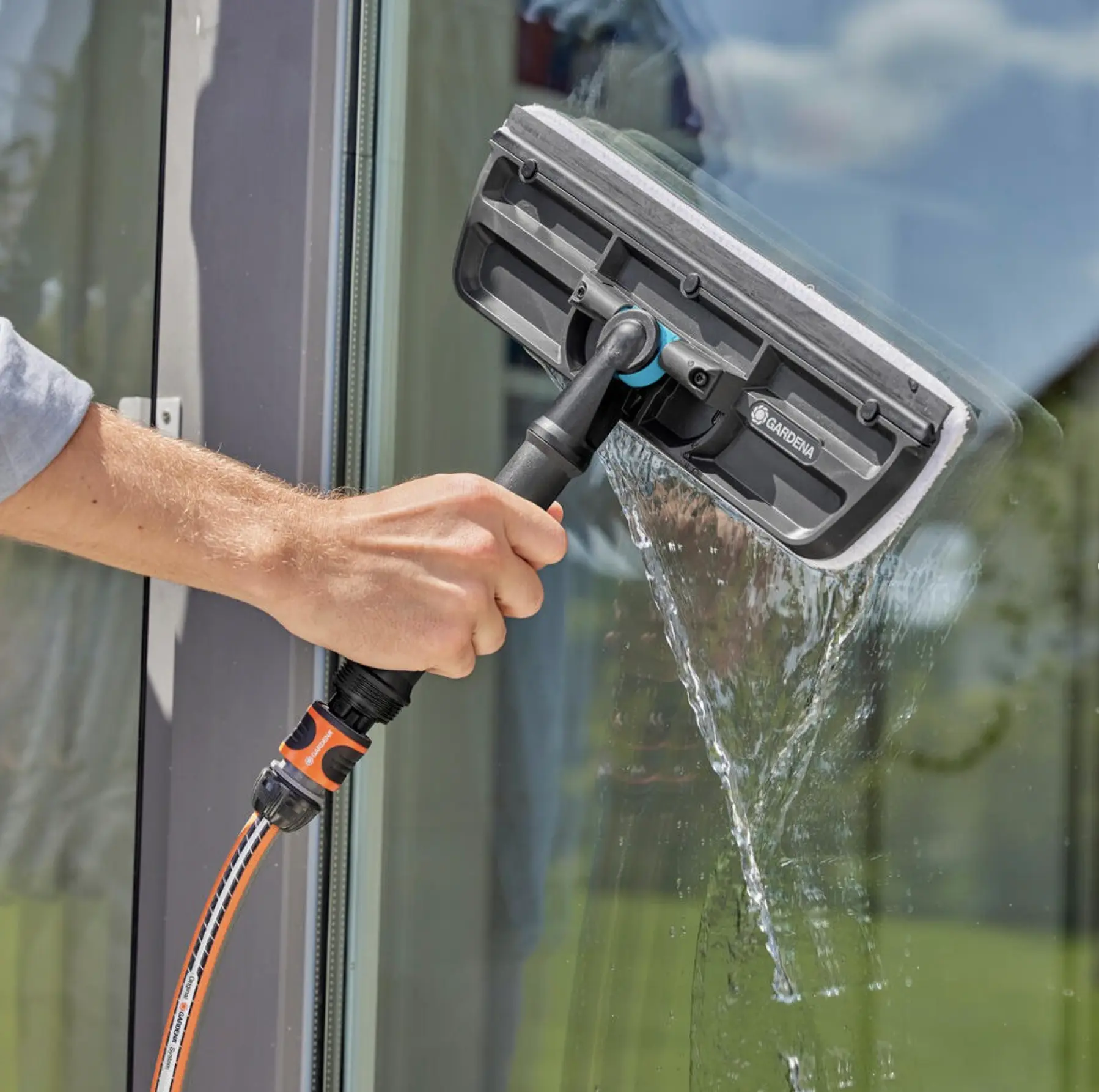
Aussie Conditions That Change the Game
Common Curveballs:
- Water Restrictions: Pressure washers use water. Stick with efficient pressure washers or manual tools when your council is breathing down your neck.
- UV and Heat: Some chemical solutions go off under strong sunlight. Always read the label.
- Humidity: Queensland is a lichen paradise. Pre-treat surfaces with a soft wash solution and let it sit.
- Red Dirt: NT homes deal with baked-on stains and red dust. Scrubbing and rinsing with a garden hose is often safer than using a high-pressure washer.
When You Do Need the Pros
Why the pros might be your best bet:
- We avoid damage that pressure washing can cause
- We understand operating pressure per square inch
- We know which surface suits which detergent feed and attachment
- We don’t just blast and go — we treat the root of the problem
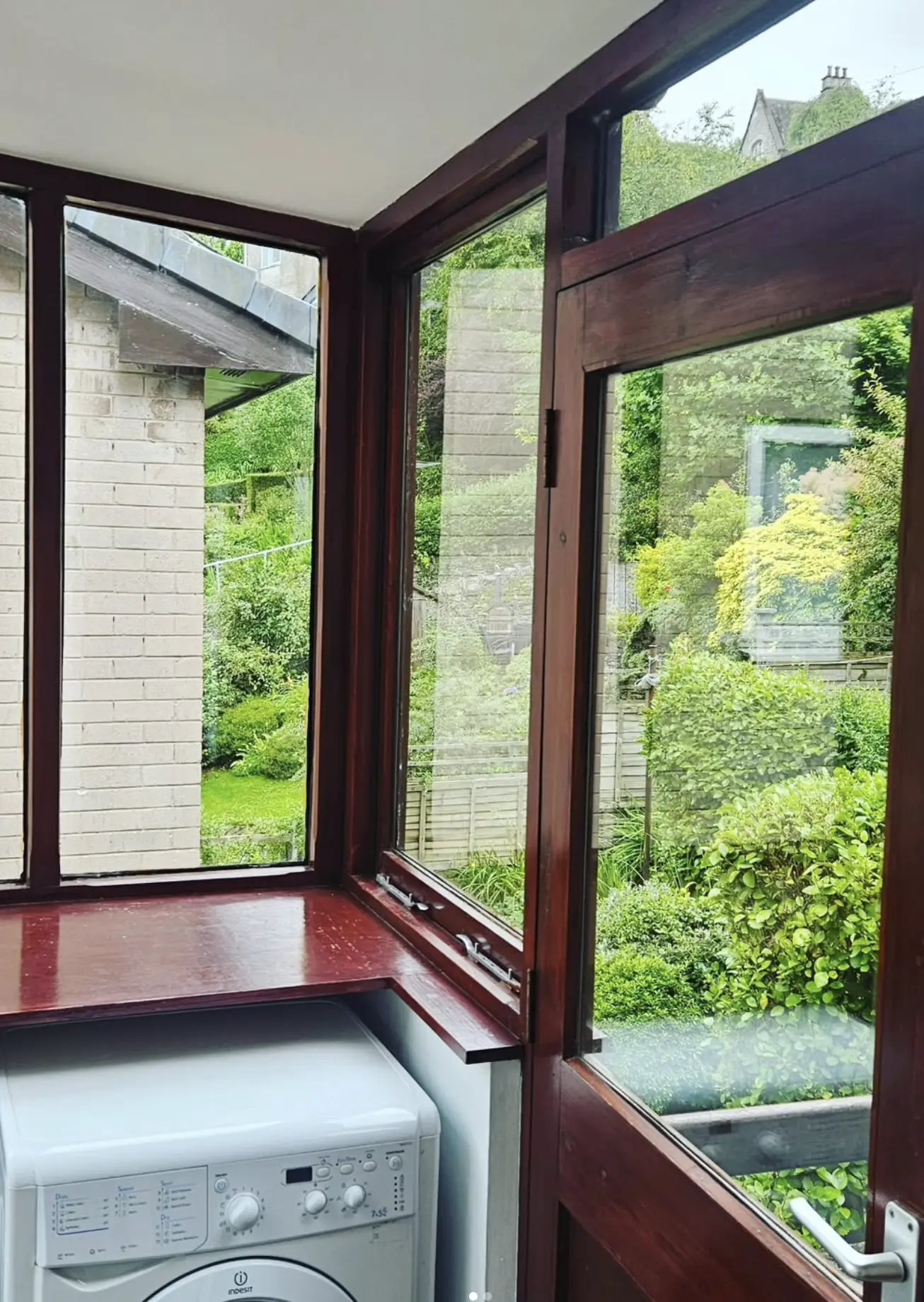
Got a grubby patio or discoloured wall? We’ll suss it out. After all, not every excellent patio needs a high-pressure hose to shine.
Need help with windows while you’re at it? The Window Cleaning Melbourne Crew knows how to get those panes spotless without risking damage to your sills or frames.
FAQ
Can I use vinegar instead of a pressure washer?
Yes, especially for lighter jobs. A vinegar and water mix can be an effective cleaning solution for concrete and patios. Just avoid it on delicate surfaces and always rinse well.
What’s the safest way to clean painted surfaces?
Use a gentle nozzle on a hose, or a soft wash solution with a soft-bristled brush. Avoid any cordless pressure cleaner or pressure washer with high PSI — it can strip paint faster than you can say “damage pressure washing.”
Do eco-friendly detergents really work?
They do. Choose the right formula for your exterior surfaces and pair it with the correct method — scrub brush, spray nozzle or soft wash system — and you’ll get excellent results.
How often should I clean outdoor surfaces without a pressure washer?
Generally, every season is a safe bet. Shady patios and paths prone to grime or heavy dirt might need more frequent attention, especially after the rain.
Is soft washing better than pressure washing?
For delicate surfaces, fragile surfaces and painted exteriors — yes. Soft washing offers excellent cleaning performance without the risk of surface damage. It’s a smarter, safer alternative method when you want to clean without chaos.






